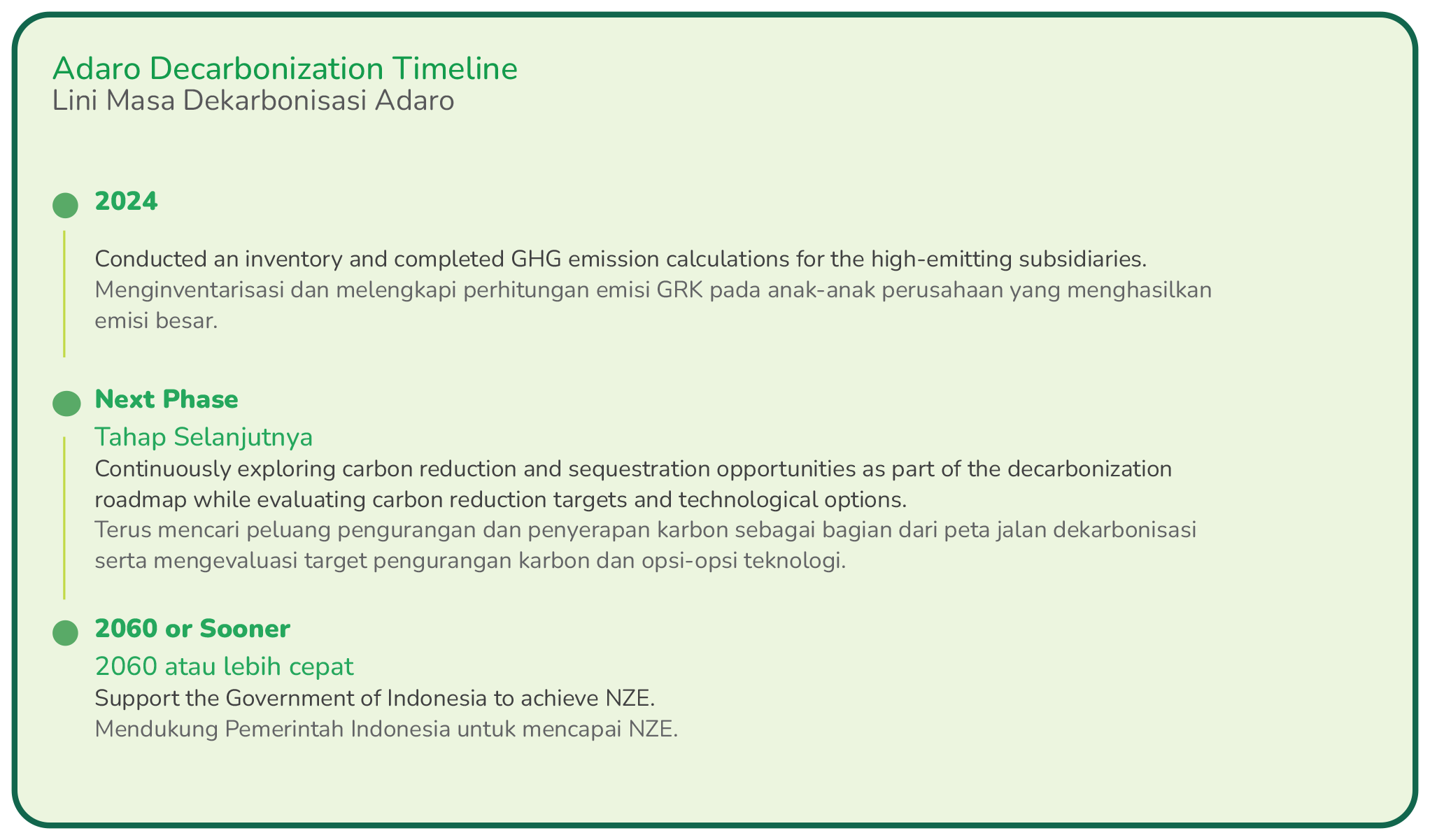

Adaro fully supports the Indonesian government to reduce greenhouse gas (GHG) emissions, including the decarbonization measures to achieve net-zero emissions (NZE) in 2060 or sooner through various measures. Adaro has calculated the GHG emissions produced from its operational activities (scope 1 and scope 2) and continues to implement various GHG emission reduction initiatives.
PT Adaro Andalan Indonesia Tbk and its subsidiaries (“Adaro”) support the Indonesian government’s commitment to reduce greenhouse gas (GHG) emissions, including measures to achieve net-zero emissions (NZE) by 2060 or sooner. In this regard, Adaro has been preparing a set of decarbonization strategies.
Adaro’s decarbonization strategies include the following initiatives:
Adaro’s ESG Strategy Framework

Adaro’s ESG Strategy Framework was formulated to identify, address and manage Adaro’s ESG risks through ESG three components: environment, social and governance. The focuses and priorities for these three components are based on the materiality and relevance to the business. Adaro’s ESG Strategy Framework also includes “enablers”, or the measures set as the bases of the Adaro’s ESG roadmap, programs, and initiatives. In line with the current global trend, among Adaro’s priorities, the main focus is GHG emissions and energy performance management.

Adaro’s mitigation measures:
Adaro is exploring the feasibility of the available technological options to ensure effective decarbonization measures, such as the technologies for low-carbon fuel and low-carbon fleets. Furthermore, Adaro will continue to monitor and keep up with the decarbonization technological advancement as a part of the measures to achieve its NZE commitment.